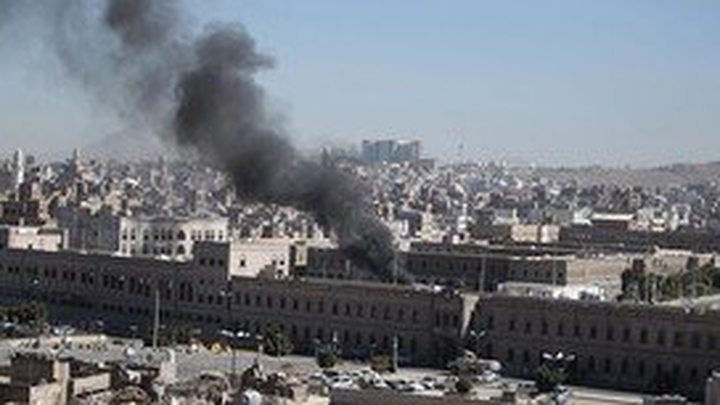Fifteen Killed In Suicide Attack in Yemen

Plumes of smoke billowed across the compound in the Bab al-Yaman district as ambulances and fire engines rushed to the scene.
Military officials said a suicide bomber drove a car packed with explosives into the gate, badly damaging the Balarda hospital inside the compound and blowing out the windows and doors of buildings in the immediate vicinity.
Up to 12 gunmen were also killed in a fire fight between troops and a carload of attackers who arrived minutes after the bomb exploded, officials said.
Yemen state news agency Saba quoted a source saying: “The attackers took advantage of the presence of some construction going on there to carry out this criminal act.”
The defence ministry said the situation was under control and “most” of the gunmen had been killed, but it did not say how many there were.
There was no immediate claim of responsibility for the attack, but officials said it had the hallmarks of al-Qaeda in the Arabian Peninsula (AQAP).
Security in Sana’a has deteriorated since popular unrest forced President Ali Abdullah Saleh from office in 2011. Yemeni security forces are fighting regional rebels and al-Qaeda, while attempting to combat lawlessness amid army splits.
In September, suspected al-Qaeda militants launched their deadliest attacks in more than a year, killing at least 40 soldiers.
The attacks raised concern about al-Qaeda militants reorganising in Yemen a year after a US-backed military operation cleared large areas they seized in the south during political turmoil in 2011.
Yemen president Abdu-Rabbu Mansour Hadi said in August that AQAP’s leader had pledged in an intercepted phone call to launch an attack that would “change the face of history”, prompting a temporary closure of many US and western embassies in the Middle East and Asia.





